The biblical feasts are a significant aspect of the Jewish faith that as Christians deserve our attention and appreciation. These feasts offer a unique opportunity to understand the rich history and the profound spiritual significance behind them. It serves as a remarkable reminder of what God has done for His people and how He continues to bless them. Each feast is enshrined with specific instructions or guidelines on how to prepare, what to do, and what to remember. The celebration of these feasts truly highlights and celebrates God’s provision and grace.
A celebration of the biblical feasts brings families and communities together in love and gratitude, creating a connectedness to something beyond us. These feasts offer us a powerful reminder that we are not alone but instead, part of a more significant community of faith.
As Christians, we can learn so many valuable lessons from these celebrations and integrate them into our faith journey. Doing so provides a time to reflect on stories and traditions passed down, exploring the symbolism and rituals and experiencing spiritual lessons taught. Thus, celebrating the biblical feasts opens up an avenue for reflection, spiritual enlightenment, and growth in our faith.
Why would I celebrate them? Aren’t those just for Jews?
Paul is one of the biggest writers in the New Testament and the most quoted by Christians today. He tells us in Ephesians 5 & 1 Corinthians 1:11 to be imitators of God. “So, imitate God, as his dear children; and live a life of love, just as also the Messiah loved us, indeed, on our behalf gave himself up as an offering, as a slaughtered sacrifice to God with a pleasing fragrance.” If we are to be imitators of Messiah, we must ask ourselves what did he do? He celebrated these feasts. In all reality he fulfilled several of them, leaving these fall feasts yet to be fulfilled in the future.
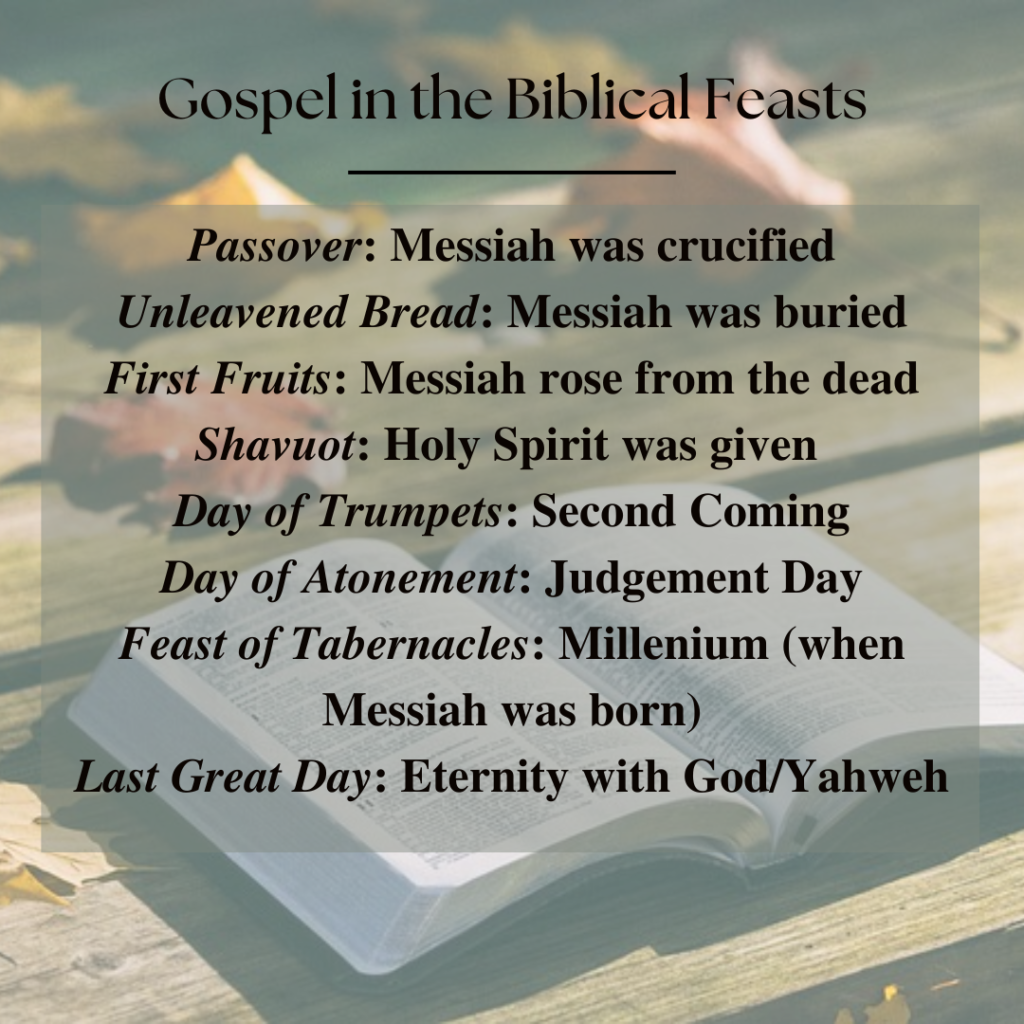
The biblical feasts were originally Israelite feasts, but they were intended to be observed by all who worshiped the God of Israel. In Leviticus 23, when Adonai commands his people to celebrate certain feasts at certain times of the year. These feasts are meant to help the Israelites remember Adonai’s covenant with them and to reflect on their relationship with him. The feasts also provided opportunities for Israelites to come together in community and worship.
When he gives these feasts Adonai says, “This is to be a lasting ordinance for the generations to come, wherever you live.” He is saying they are to be celebrated forever, generation to generation. He is the creator of time and outside of time. He knows what forever means. We also find mention in Isaiah about how these feasts will happen during the Millennial Reign.
However, after Yeshua/Jesus’s death and resurrection, the relationship between Adonai and humanity was made available to everyone, not just the Jewish people. As a result, Christians can also choose to celebrate these feasts as a way to remember and reflect on God’s covenant with them. While the feasts do have cultural and historical significance to Jewish people, they are ultimately celebrations of God’s goodness and faithfulness, which apply to all who worship him.
When we read Romans 11, Paul is describing how Gentile believers are grafted into the house of Israel. What Yeshua/Jesus did on the cross was more than just taking our sins away. He made a way for all to enter into paradise!
In the Old Testament two women are described, Rahab and Ruth. Both of these women were gentiles, yet they believed in the one TRUE God, and they join HIS people. Just like we do when we accept Yeshua/Jesus into our heart and lives.
Rahab is a fascinating figure in Scripture who is often overlooked but has a significant impact on the story of God’s people. She was a prostitute who lived in the city of Jericho and helped a group of Israelite spies when they came to scout out the city. Rahab recognized that the God of the Israelites was the true God and risked her life to protect the spies from the king’s soldiers. In return, the spies promised to spare Rahab and her family when the Israelites conquered Jericho. After this event she spent the rest of her life with the Israelites. (Joshua 2)
Ruth was a Moabite woman who married into an Israelite family. When her husband died along with her father-in-law and brother-in-law, she chose to return to Israel with her mother-in-law, Naomi. Ruth’s pledge to Naomi, “Where you go, I will go, and where you stay, I will stay. Your people will be my people and your God my God,” is famous, and it reflects her deep loyalty to her adopted family and her desire to follow the God that they worship. (Ruth)
Ultimately, they were both grafted into the Israelite nation. They both Rahab and Ruth are mentioned in the lineage of Yeshua/Jesus. (Matthew 1)
How & when do we celebrate these Feasts?
Celebrating the biblical feasts is a significant way for believers to connect with and uphold their Jewish heritage. The feasts commemorate important events in the history of the Israelites and provide a powerful way to reflect on God’s goodness and faithfulness.
To celebrate the biblical feasts, here are some practical steps to follow:
1. Learn about the feasts and their significance by studying the Scriptures or attending teachings.
2. Choose whether to celebrate them according to biblical or Rabbinic traditions.
(Our family chooses scripture over man-made tradition.)
3. Prepare your home and heart by cleaning and praying before the start of each feast.
4. Invite friends and family to a feast, and make sure to include traditional foods and ways of celebrating.
5. Observe the Sabbath and abstain from work on the chosen feast days.
6. Take time to reflect on God’s mercy, grace, and provision for His people throughout history.
Celebrating the biblical feasts offers a meaningful way to connect with God and join in the celebration of His goodness.
The biblical fall feasts are traditionally celebrated between the months of September and October, according to the Jewish calendar. The first of these feasts is Rosh Hashanah, (Feast of Trumpets) also known as the Jewish New Year. This day marks the beginning of a ten-day period of repentance and self-reflection, leading up to the Day of Atonement, or Yom Kippur. This day marks the forgiveness of sins and a renewed commitment to follow God’s commands. Finally, the season closes with the joyous celebration of Sukkot (Feast of Tabernacles), which commemorates the Israelites’ journey through the wilderness and God’s provision of food and shelter.
- Feast of Trumpets: September 16th or 17th*
- Day of Atonement: September 25th or 26th*
- Feast of Tabernacles: September 30th – October 6th
These are the dates our family celebrates, if you celebrate a different day that’s okay!

What our family does to celebrate!
The Feast of Trumpets is known as the feast that “no man knows the day or time”. It’s a feast that you have to be searching for the moon phases. Leviticus 23:24-25
It’s a time to be blowing trumpets or shofars and sharing the testimony of Yeshua/Jesus. A time of repentance.
Our family chooses to celebrate them using God’s word, scripture. We try to make it fun for our kids but honoring to God at the same time.
For the Feast of Trumpets our family hosts. We have an ice cream social. Waffle cones make great and fun trumpet shapes! Friends and family gather with great food, fellowship and ice cream around our bonfire. We blow shofars and celebrate together!
Scripture to read and prayer over during this time:
Leviticus 23:23-25
Numbers 29:1-6
Joel 2
Psalm 139
John 5:24-27
John 10:27-30
2 Timothy 4:1
Revelation 21:1-9
Day of Atonement – Yom Kippur
The day of Atonement is also known as Yom Kippur. It’s typically a day of fasting. The fast usually is for 25 hours, from sunset on the eve of the holiday until darkness the following day. It is a time for individuals to focus on spiritual matters, with a goal of strengthening their relationship with God and improving themselves as individuals. Overall, the Day of Atonement is a powerful reminder of the importance of repentance, forgiveness, and renewal in one’s spiritual journey. The fast is typically broken in fellowship and feasting with fellow believers.
Scripture to read and pray over during this time:
Leviticus 16 Which Yeshua/Jesus is our atonement. The sacrifices now are spiritual. Our body is the temple. What things can we give up? What things should we stop giving all our time and attention too? (TV, social media, etc.)
Leviticus 16:8-10
Leviticus 16:20-22
Leviticus 16:29-34
Leviticus 23:27
Numbers 29:7-11
Isaiah 53
Isaiah 66:7-14
Ezekiel 45:20
Zechariah 12-13
Luke 23:44-46
Romans 3:21-25
Romans 11:26
Hebrews 9
1 Peter 2:21-25
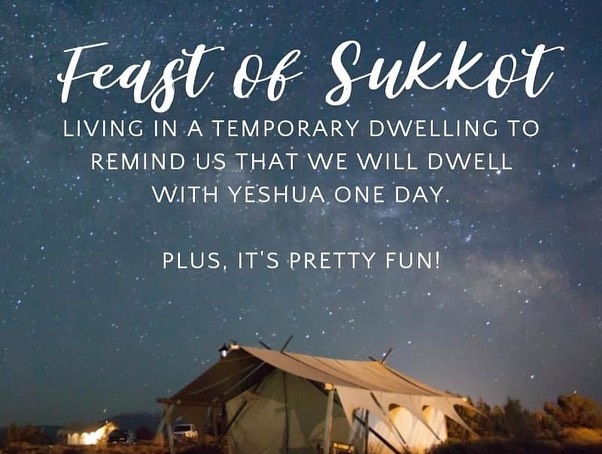
Feast of Tabernacles – Sukkot
The Feast of Tabernacles, also known as Sukkot, is a seven-day festival that is celebrated in the fall. It is a time to remember the 40 years that the Israelites spent wandering in the desert after leaving Egypt. During this time, they lived in temporary shelters called sukkahs.
The main symbol of the holiday is a sukkah, a booth made of branches, leaves, and other natural materials. The sukkah is meant to remind us of the temporary shelters the Israelites used during their journey in the desert. Families will often decorate the sukkah with fruits, vegetables, and other harvest items.
The holiday is also associated with harvest time and is a time for rejoicing and giving thanks. It is customary to recite special prayers and blessings during this time.
The last day of this weeklong celebration is known as The Last Great Day.
Scripture to read and pray over during this time:
Leviticus 23:33-44
Exodus 34:22-23
Numbers 29:12-40
Deuteronomy 16:13-15
Ezra 3
Psalms 113-118
Isaiah 49:6
Zechariah 14:16-19
John 7
The birth of Yeshua/Jesus (Matthew 1-2)
Revelation 21:1-9
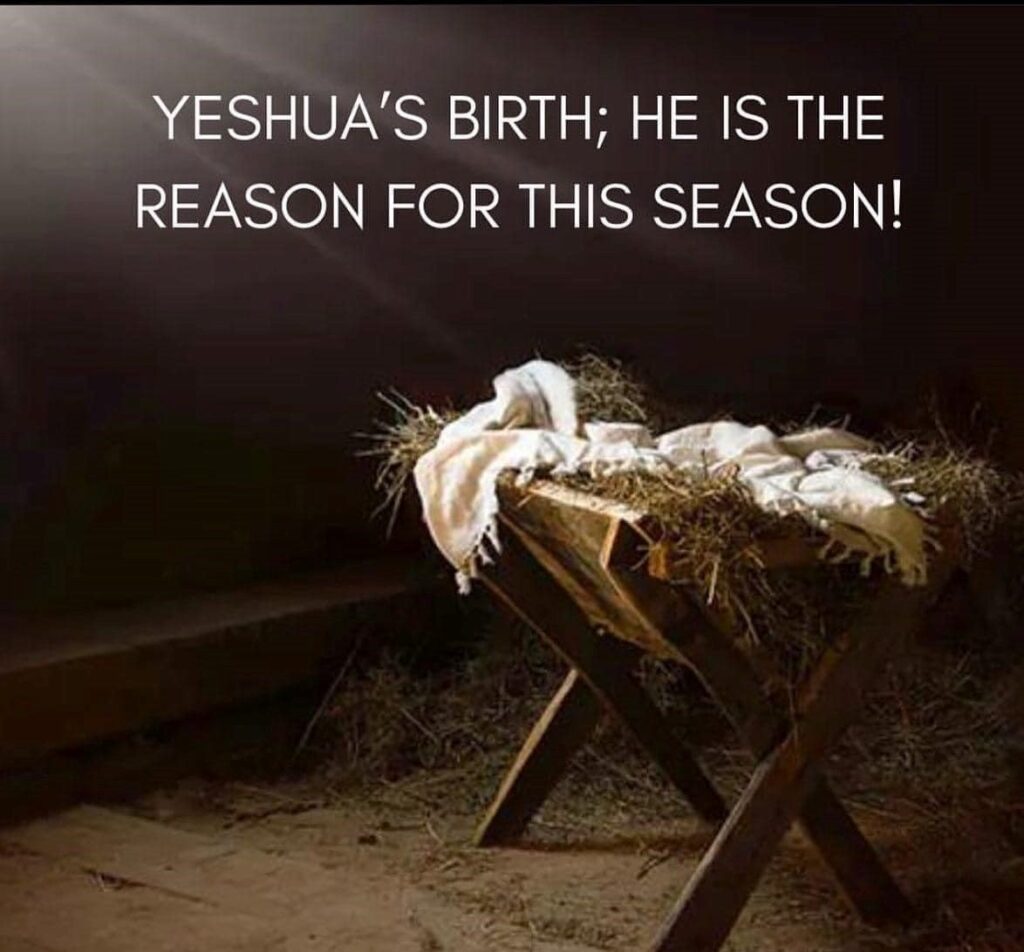

The first year we celebrated Sukkot it was freezing cold and non-stop rain. We still wanted to celebrate and have fun! We built a sukkah in the house. We hung blankets in the living room and made homemade decorations.
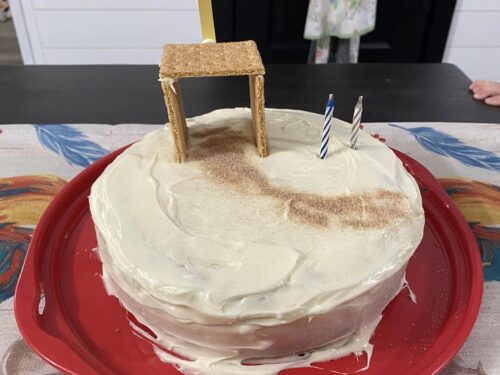
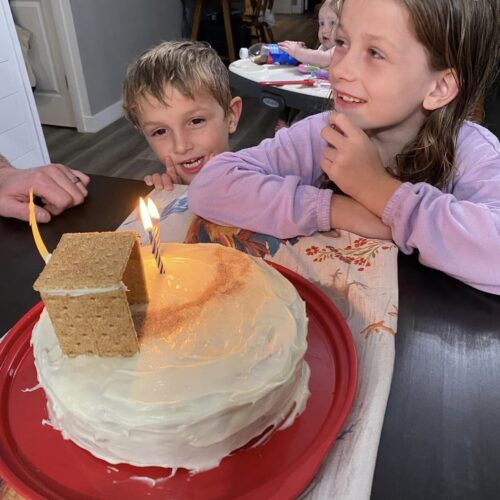
It’s the time that we celebrate the birth of Yeshua/Jesus. You can figure out his possible birth by using scripture. It doesn’t match December 25th which the world celebrates.
We know according to scripture that Mary and her cousin Elizabeth were pregnant around the same time.
Luke 1:5 Talks about Zacharias, Elizabeth’s husband being a priest and when he would’ve been in the temple serving (Luke 1:18-23). King David kept records of this information. (1 Chronicles 24:1-19; 28:12-13)
It’s just something to pray about and consider. Nowhere in scripture are we commanded or told to celebrate the birth of Yeshua/Jesus.
Throughout the bible, God establishes seven feasts as appointed times for his people to remember his faithfulness, provision, and salvation. These feasts include Passover, Unleavened Bread, Firstfruits, Pentecost, Trumpets, Day of Atonement, and Tabernacles.
Yeshua/Jesus fulfilled each of these feasts in a profound and meaningful way. He was the Passover Lamb, the perfect and spotless sacrifice that covers our sins. He was the Unleavened Bread, the sinless one who gives us new life. He was raised on the third day, the Firstfruits of the resurrection. He poured out his Holy Spirit on Pentecost, empowering his followers to carry out his mission. He will return with the sound of the Trumpet, signifying the last days. He made atonement for our sins through his death and resurrection. And he will dwell among us forever in the ultimate fulfillment of the Feast of Tabernacles.
As we study and understand the significance of these feasts, we see how they point to Yeshua/Jesus and his ultimate plan for our salvation. May we remember and celebrate these feasts as we look forward to his triumphant return.
Remember in celebrating these feasts they’re to bring you closer to God, not add stress or worry. He gave them to us so that we have the ability to draw closer to Him. To give Him adoration the way He wants to be worshiped.
I pray if you choose to celebrate these feasts you have fun with them! Let Adonai lead you!
Our Tiktok has videos related to the biblical spring feasts and how our family celebrates them!
Amazon (Affiliate link) – Just some extras!
“This will be a day for you to remember and celebrate as a festival to Adonai; from generation to generation you are to celebrate it by a perpetual regulation.” – Exodus 12:14

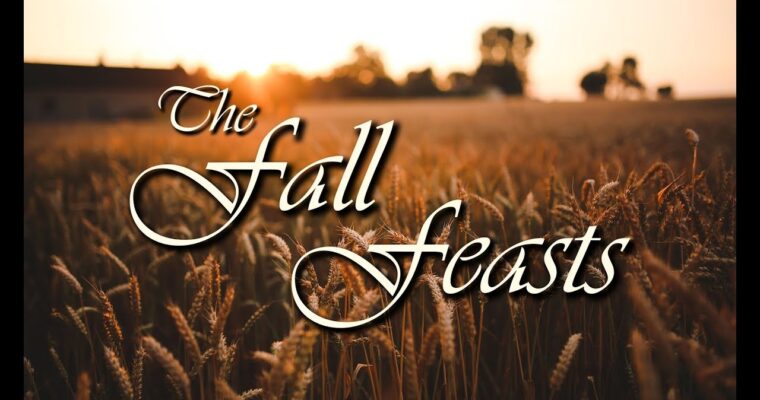

Leave a Reply